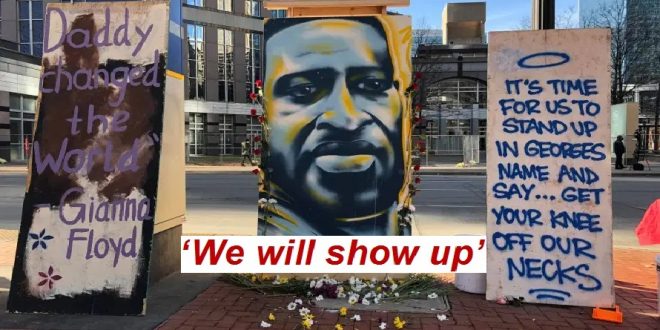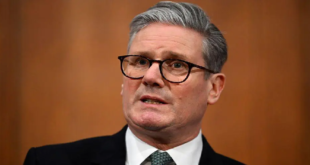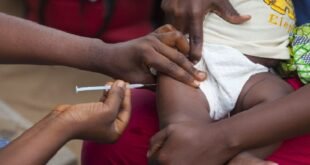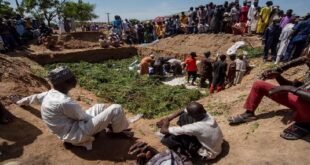09-03-2021
MINNEAPOLIS: A few hundred demonstrators gathered on Monday outside the Hennepin County Government Center in Minneapolis, where the trial of  former police officer Derek Chauvin, charged in the death of George Floyd, is set to begin this month.
former police officer Derek Chauvin, charged in the death of George Floyd, is set to begin this month.
Many protesters expressed anxiety about whether Chauvin would be convicted in Minnesota’s first publicly broadcast trial, which will make it one of the most widely watched police brutality cases in recent history but they pledged to maintain their demand for Chauvin’s conviction.
“We’re going to continue showing up for community,” said Minneapolis NAACP Vice President Anika Bowie. “We understand that justice will prevail within us. We will show up, and we will be very persistent, challenging the system.”
Jury selection was originally set to begin on Monday, but a court ruling that  the judge must consider adding a third-degree murder charge pushed it to at least Tuesday.
the judge must consider adding a third-degree murder charge pushed it to at least Tuesday.
Chauvin currently faces second-degree murder and manslaughter charges after kneeling on Floyd’s neck for more than eight minutes during an arrest in May 2020 that was captured on video.
Three other officers, who did not intervene as Floyd repeatedly said he could not breathe, will be tried together in August on aiding and abetting charges.
Lawyers for Chauvin, who was fired from the police force the day after Floyd’s death, have argued that he correctly followed his training, Reuters news agency reported.
An unusually long period of three weeks has been allotted for finding an impartial jury – a likely arduous task.
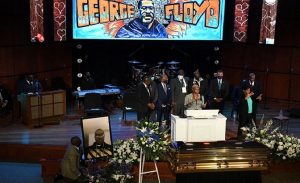 The questionnaire for prospective jurors includes questions about their prior knowledge of the case, which spurred mass demonstrations for racial justice across the United States and around the world.
The questionnaire for prospective jurors includes questions about their prior knowledge of the case, which spurred mass demonstrations for racial justice across the United States and around the world.
Other high-profile cases
As a rotating lineup of speakers addressed the crowd in Minneapolis, 28-year-old Josh Simms stood quietly with a sign reading, “We demand justice.”
Simms said he moved from Chicago to Minneapolis to attend the University of Minnesota in 2013. In that time, four high-profile police killings have occurred in the Minneapolis area.
In 2015, Minneapolis police fatally shot 24-year-old Jamar Clark. The two officers at the scene, the city never clarified which officer pulled the trigger were not charged.
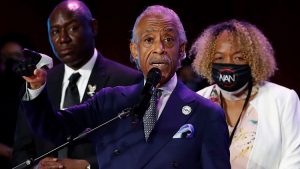 Less than a year later, in a nearby suburb, 32-year-old Philando Castile was pulled over and shot repeatedly by police officer Jeronimo Yanez, who ultimately was cleared by a jury of second-degree manslaughter and two counts of dangerous discharge of a firearm.
Less than a year later, in a nearby suburb, 32-year-old Philando Castile was pulled over and shot repeatedly by police officer Jeronimo Yanez, who ultimately was cleared by a jury of second-degree manslaughter and two counts of dangerous discharge of a firearm.
“There really hasn’t been any change,” Simms told media. “Knowing how history is, there’s the chance he’ll (Chauvin) be acquitted.”
A few months after Yanez was acquitted Minneapolis police officer Mohamed Noor, who is Somali, fatally shot Justine Damond, who is white, after she called to report a possible sexual assault in her neighborhood. Noor was convicted of third-degree murder and manslaughter and sentenced in 2019 to 12.5 years in prison.
“(Noor) got put in prison. But all these other police out here killing these brothers isn’t going nowhere,” 46-year-old Darion Scott, who has lived in 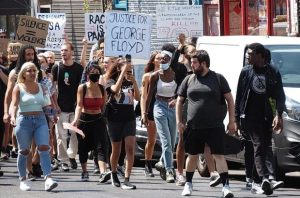 Minneapolis for 20 years, told media at Monday’s rally.
Minneapolis for 20 years, told media at Monday’s rally.
“This system has been broken for years. The question is, when is it going to stop?”
‘It’s our responsibility’
On the opposite side of the government building, a group called Visual Black Justice laid mirrors against trees and next to signs with various messages, such as “Minnesota will be the change” and “It is better to protest than to accept injustice.”
Rose petals enclosed a large mirror in the centre of the building’s lawn that read “Reflect”.
“We all have a role in white supremacy,” said Tay Elhindi, co-leader of the group. “So we need to reflect and hold ourselves accountable. If we’re not doing that, we can’t hold anybody else accountable.”
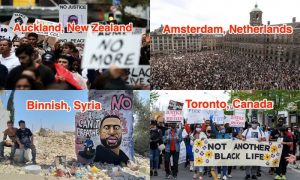 Protesters also chalked messages on boarded-up windows lining the street.
Protesters also chalked messages on boarded-up windows lining the street.
Mimi Vallejo, 25, sat with her two-year-old son as her partner added emphasis to the message “Free the kids in cages”, a reference to children who were held in cages at US immigration detention facilities at the US-Mexico border.
“It’s getting to the point where I think our children need to be aware, too,” she said.
Vallejo, who immigrated to the US from Mexico as a child, said she grew up fearing injustice from her government only to face the same problem in the US.
“That fear has always been there for us,” she said. “As people who are also experiencing, or have experienced oppression and racism from the system, it’s our responsibility to be here … The system that killed George Floyd is the same system that is keeping my relatives down at the border in cages.” (Int’l News Desk)
 Pressmediaofindia
Pressmediaofindia
